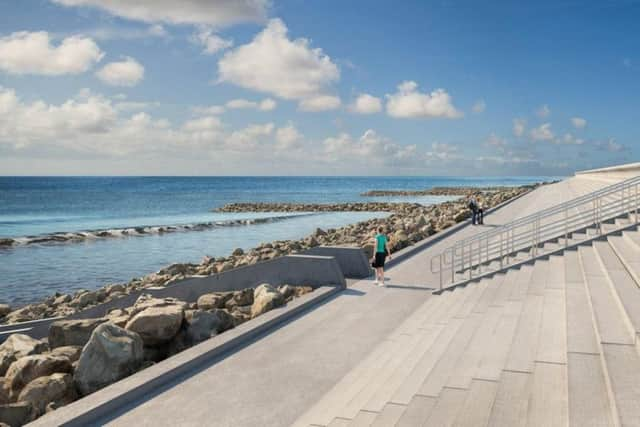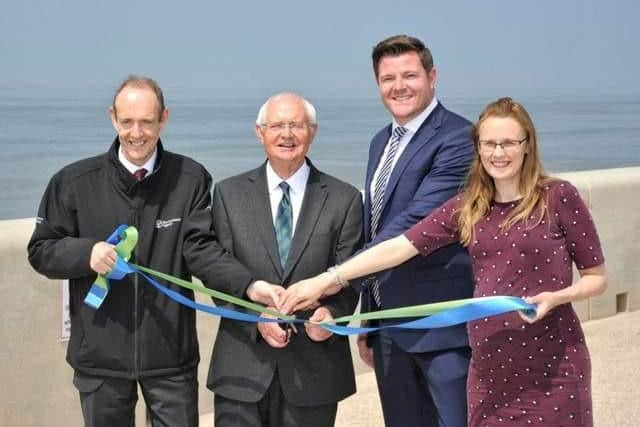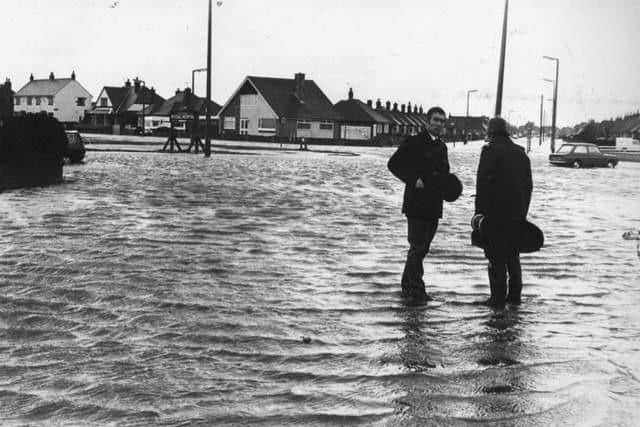We've got sea flood concerns in hand, says Council after report says Wyre could be 'lost' to sea flooding
and live on Freeview channel 276
The research, carried out for the Climate Change Committee, examines how rising sea levels caused by climate change, combined with erosion of foreshores by waves, are increasing coastal flood risk.
It warns it may not be possible to protect some communities.
Advertisement
Hide AdAdvertisement
Hide AdAccording to the study, Wyre is among the local authorities deemed likely to face the largest challenge in responding to sea level rise, through to 2050s and 2080s, as well as areas in North Norfolk, Cornwall and North Somerset.


Experts say there is an urgent need for a national debate about the flooding threat to coastal communities, and for long-term clarity on "transformational change" in some areas, including rolling back defences – and even moving properties.
But Wyre Council says it has future flooding concerns well in hand, having already completed considerable coastal defence work in Cleveleys and Fleetwood when the £64m Rossall Coastal Defence Scheme was ‘opened’ in June 2018.
The Fylde coast was hit hard in November 1977 when a “perfect storm” combination of an abnormally high tide and a Gale Force 12 westerly wind caused considerable sea flooding in some areas, with houses and schools affected.


Advertisement
Hide AdAdvertisement
Hide AdIn Wyre, Fleetwood – also flooded in 1927 - was badly hit, along with Cleveleys and Knott End.
But since then, there has been a great deal of work carried out in an effort to prevent such an occurrence happening again.
The council is already on with the next stage of its coastal protection programme, the Wyre Dune and Beach Management Scheme.
A Wyre Council spokesman said in response to the study: “We are working with our partners on a number of flood protection schemes to protect homes and businesses in Wyre which take into account rising sea levels.


Advertisement
Hide AdAdvertisement
Hide Ad"That includes our flood protection Wyre Beach and Dune Management Scheme, a £42 million project to help raise and stabilise beaches from Cleveleys to Fleetwood.
"The scheme will protect over 11,000 properties.
"We have also successfully bid for £7.2 million of funding to develop coastal resilience through the creation of natural buffer strips around the coast.”
The study, which is published in the journal Oceans And Coastal Management, compares the rising risk of coastal flooding with existing policies for managing the coast.
It says England could face around 35cm (14in) of sea level rise compared to historic levels by 2050.
Advertisement
Hide AdAdvertisement
Hide AdRising seas combined with increased wave-driven erosion are raising the risk of coastal flooding, forcing the Government and communities to decide how to respond - whether to hold the line against the sea by building and maintaining defences or realign the shoreline and move properties.
For a thousand miles of English coast, there will be pressure to rethink current policy to hold the line as it may become unfeasible due to rising costs, or technically impossible, the study says.
Lead author Paul Sayers, an engineering consultant who works with the University of East Anglia's Tyndall Centre, said: "Significant sea level rise is now inevitable.
"We need a serious national debate about the scale of the threat to these communities and what represents a fair and sustainable response, including how to help people to relocate."
